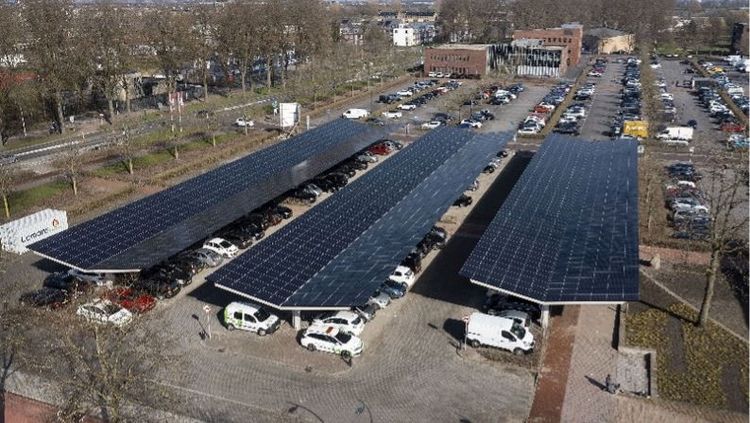The electricity grid in the Netherlands is currently unable to provide sufficient capacity for both the integration of new renewable electricity powerplants as well as for the integration of new electricity demands like electric vehicle charging. Symptoms of this scarcity of capacity, also seen in other countries undergoing an energy transition, are observed in various forms.
On the generation side, newly planned solar photovoltaic projects at both commercial and residential scales are increasingly being denied permission to connect to the grid or face long delays for grid reinforcement before they are connected. On the demand side, recent mapping studies by the Dutch grid operators show that most of the country faces structural congestion in the distribution and transmission grids.
The Dutch ambition is to integrate 12 GWp of additional solar installed capacity to the existing 14 GWp by 2030. Also by 2030, the total number of Electric Vehicles (EVs) in the Netherlands is expected to increase from about 390,000 (4.4% of the total Dutch passenger vehicle fleet) today to about 1 million (10%), increasing the peak electricity demand.
The scarcity of capacity in the electricity grid to integrate both low carbon solar generation and electric vehicle charging presents an obstacle to the realisation of both short- and long-term emissions targets. Even though significant grid expansion is already planned and commissioned, this scarcity of capacity is expected to be a characteristic feature of the electricity grid over the coming decades.
Ghotge’s PhD thesis investigates how the coupling of solar carparks and EV charging enables their integration in a grid with scarce capacity while lowering operational carbon emissions. It includes both simulation work for solar carparks at specific locations and the trials conducted with a prototype solar carpark with vehicle-to-grid (V2G) charging that was constructed on the Delft University campus. Learnings from the test set up were applied to commercially roll out solar carparks as part of the PowerParking project, with the first one being constructed at the Municipality of Dronten, in the Netherlands.
The doctoral thesis and its summarised contents are expected to be of interest to academic researchers, engineers in the solar and EV sectors, infrastructure project designers and planners, business developers in the field of EV charging and policy makers working on EV charging and integration.
The thesis and public summary are available online at the TU Delft repository by clicking the link here.


